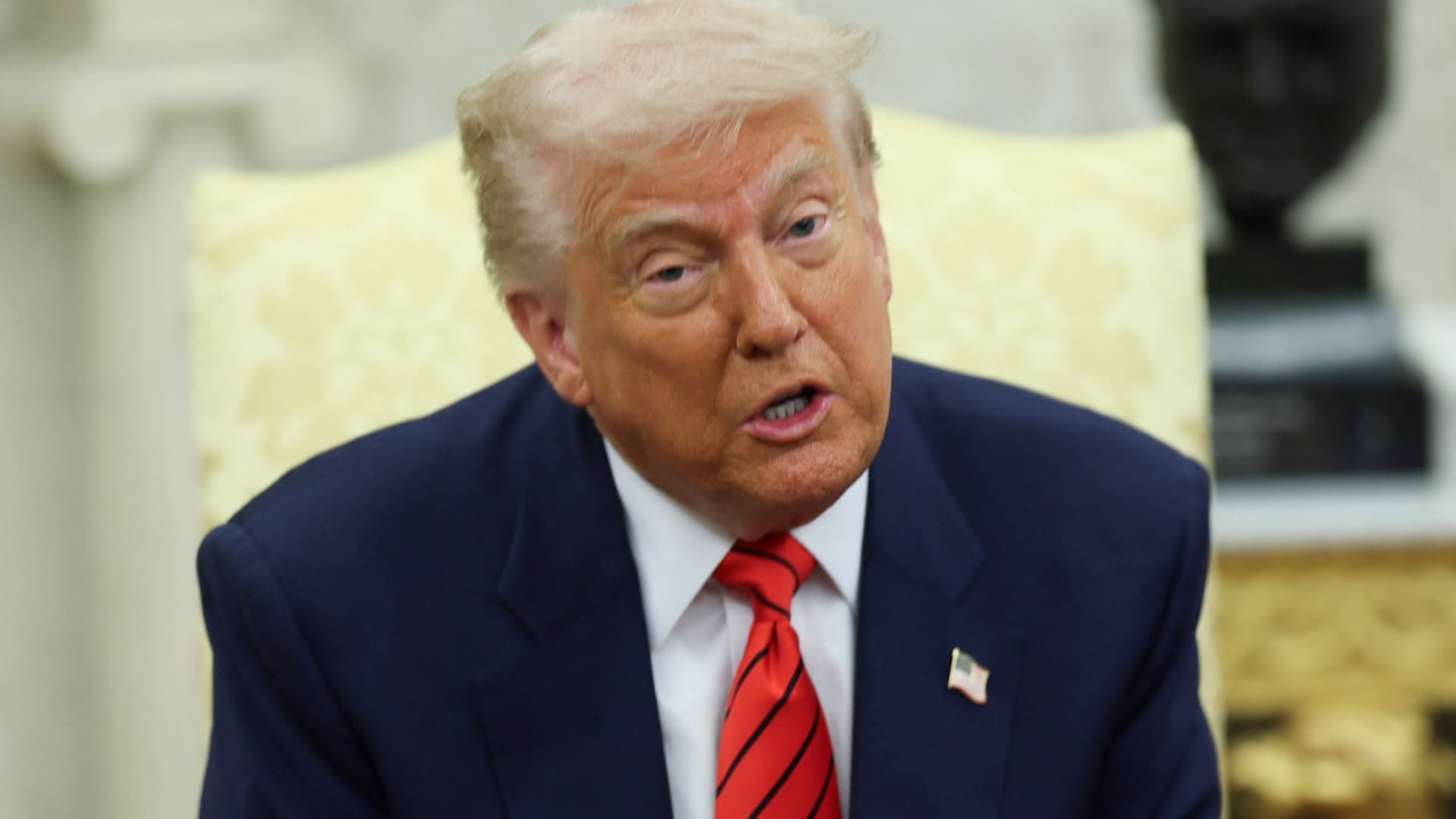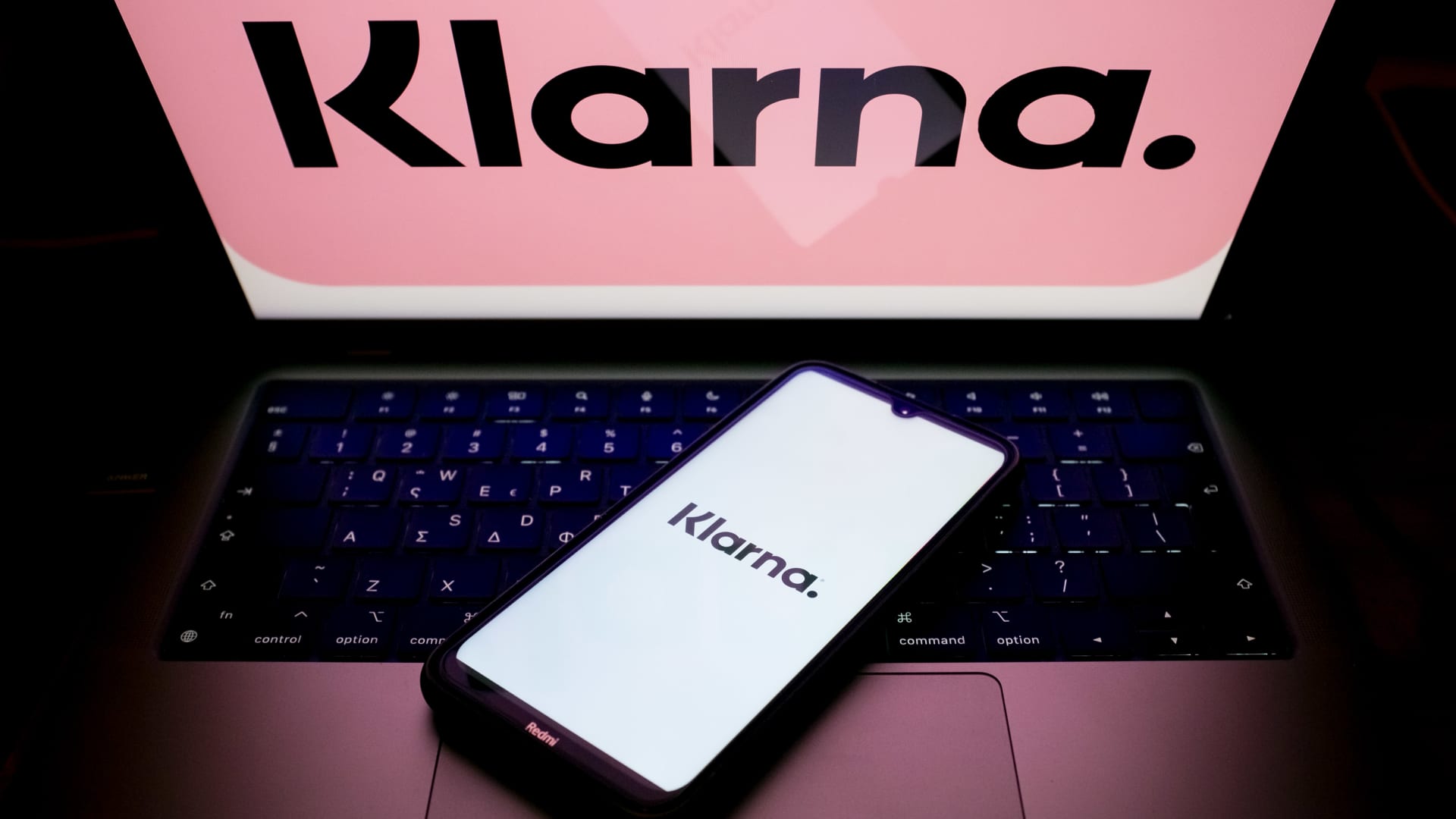U.S. President Donald Trump meets with Canadian Prime Minister Mark Carney (not pictured) in the Oval Office at the White House in Washington, D.C., U.S., May 6, 2025.
Leah Millis | Reuters
“The Art of the Deal” author President Donald Trump said in a surprising comment Tuesday that the United States does not need to “sign deals” with trade partners, despite top White House officials claiming for weeks that such deals are the administration’s top priority.
“Everyone says, ‘when, when, when are you going to sign deals?'” Trump grumbled during a White House meeting with Canadian Prime Minister Mark Carney.
“We don’t have to sign deals, they have to sign deals with us. They want a piece of our market. We don’t want a piece of their market,” Trump said.
After weeks of touting how many countries were asking for bilateral trade talks with the United States, the president and his team have yet to announce any formal agreements or frameworks.
“I wish they’d … stop asking, how many deals are you signing this week?” said Trump, clearly frustrated at the mounting pressure on the White House to show progress on trade talks. “Because one day we’ll come and we’ll give you 100 deals,” he said.
Trump’s effort to deprioritize trade deals Tuesday marked a turn away from what his Treasury Secretary told CNBC the day before.
The U.S. is “very close to some deals,” Scott Bessent said on “Money Movers.”
Trump himself said Sunday on Air Force One that there “could very well be” trade deals rolled out this week. “At the end, I’m setting the deal,” he told reporters en route to Washington.
Speaking last week during a NewsNation town hall, Trump also said that his administration has “potential deals” with India, South Korea and Japan.
He also said last week that negotiations with India were “coming along great” and the U.S. will “likely have a deal with India.”
On Tuesday, however, Trump blamed top aides like Bessent and Commerce Secretary Howard Lutnick for overpromising trade deals.
“I think my people haven’t made it clear, we will sign some deals,” said Trump. “But much bigger than that is we’re going to put down the price that people are going to have to pay to shop in the United States. Think of us as a super luxury store, a store that has the goods.”
U.S. markets moved lower Tuesday afternoon after Trump made the comments about deals.
Investors and business leaders are desperately hoping the Trump administration can negotiate a series of bilateral agreements with major U.S. trading partners like Japan, South Korea and India before the full brunt of the tariff induced trade slowdown hits the U.S. economy.
But so far, the Trump administration has not provided any details about any specific deals. Instead, nearly every day, top aides publicly claim that several deals are “close” and could be announced within days.

 Blog Post1 week ago
Blog Post1 week ago
 Economics6 days ago
Economics6 days ago
 Economics1 week ago
Economics1 week ago
 Accounting6 days ago
Accounting6 days ago
 Personal Finance1 week ago
Personal Finance1 week ago
 Economics7 days ago
Economics7 days ago
 Personal Finance6 days ago
Personal Finance6 days ago
 Personal Finance6 days ago
Personal Finance6 days ago











